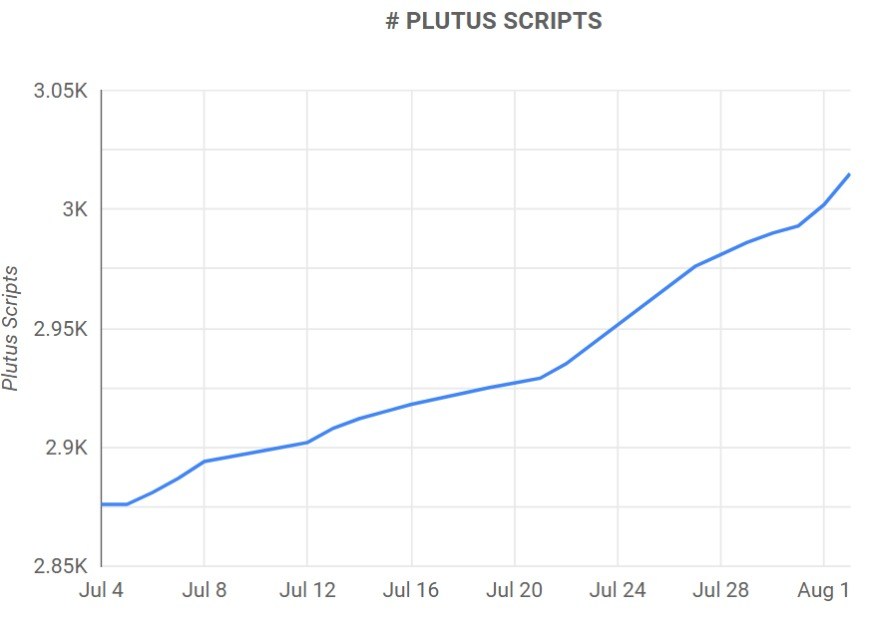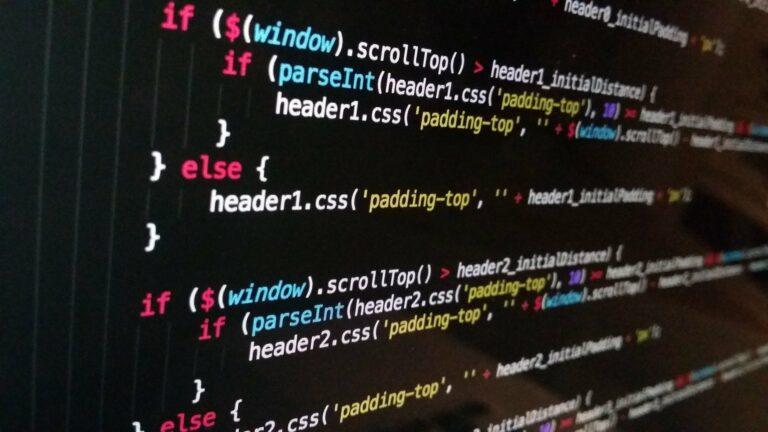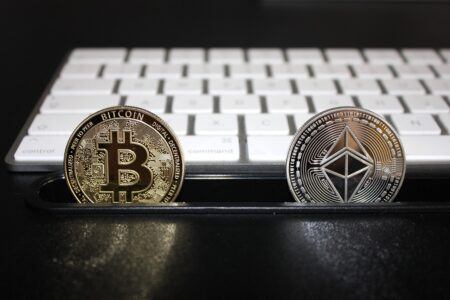The number of smart contracts deployed on the Cardano ($ADA) network has reached a new milestone above the 3,000 mark for the first time in the cryptocurrency’s history as developers work on it ahead of the Vasil hard fork and as its decentralized finance (DeFi) ecosystem grows.
According to data from Cardano Blockchain Insights, there are at the time of writing a total of 3,105 Plutus-based smart contracts deployed to the cryptocurrency’s network, up from around 3,000 on August 1, as Finbold reports. In July, the figure stood at 2,900.

Plutus, it’s worth noting, is the “smart contract platform of the Cardano blockchain” that allows users to “write applications that interact with the Cardano blockchain.”
The number of smart contracts on Cardano surpassed 1,000 back in January of this year after the price of ADA exploded last year with the rollout of the widely anticipated Alonzo hard fork, which brought smart contracts into the network, allowing it to compete with other blockchains such as the BNB Chain ($BNB), Ethereum ($ETH), and Solana ($SOL).
Cardano is now moving closer to its Vasil hard fork which is expected to deliver a “massive” performance improvement to the cryptocurrency’s network, was delayed by “a few more weeks.”
The Vasil hard fork will involve four Cardano Improvement Proposals (CIPs). Investors have nevertheless been betting on it, with data from Coinbase’s price pages showing that users of the Nasdaq-listed cryptocurrency exchange have a typical ADA hold time of 153 days, meaning that Cardano traders on the platform hold onto their assets for that long before “selling it or sending it to another account or address.”
Cardano was late last month revealed to continue being the king of blockchains when it comes to the frequency of meaningful GitHub activity. Per Santiment, Cardano “continues to see the most frequent notable GitHub activity,” followed closely by Flow ($FLOW), Polkadot ($DOT), Kusama ($KSM), and Ethereum ($ETH):
Santiment’s developer activity metric tracks “the number of GitHub events that the project organization generated.” It tracks development events instead of just commits as its methodology “successfully avoids” specific pitfalls, which for example include projects forking others to “inherit” their commits and contributions.
As CryptoGlobe reported, an artificial intelligence-based price prediction model is suggesting that the price of Cardano’s native token ADA is going to surge to trade at $2.9 by September of this year, representing a 530% increase from the cryptocurrency’s current price.








